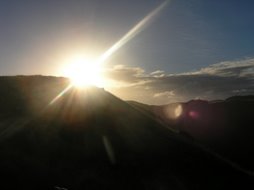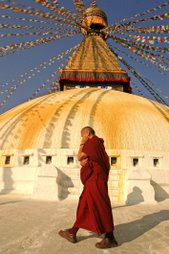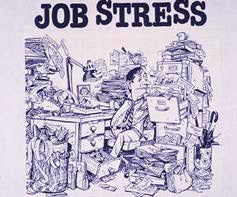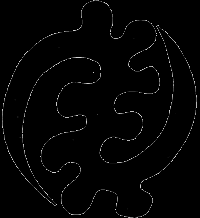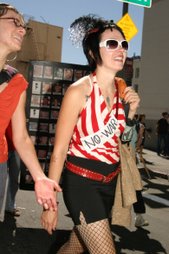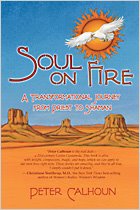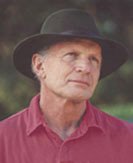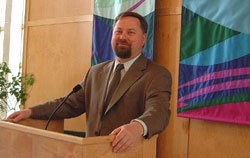In winter 2003, Rev. Dr. Ed Brock asked me to study all information we could find on small groups in churches. He wanted to adapt what was known about small group ministry in other churches to the Edmond Unitarian Universalist Congregation.
After three months of research, I designed a small group ministry model for EUUC. In summer 2003, Rev. Dr. Ed Brock asked me to coordinate the Covenant Groups we were forming. From summer 2003 to fall 2005 I was the Covenant Group Coordinator at EUUC.
We started with three groups and when graduate school work and my part-time work did not permit me to continue doing the work well I handed over twelve groups to Sylvana Rinehart. More than fifty people were active members in these groups that met twice a month. In this tribute, Sylvana describes how Rev Dr Ed Brock worked with her to coordinate small group ministry activities at EUUC.
In the second post, Richard Penny writes about how Rev Dr Ed Brock with assistance from church growth consultant Alice Man helped the church to move from a pastoral size congregation (50 – 150 active members) to a program church (150-350 active members).Covenant Groups at EUUC
Sylvana RinehartIn September of 2003, Ed started the Covenant Groups at EUUC because he knew that for the church to grow, new members had to experience a close network of friends within a year of being at the church. It was a good place to mix “old” and “new” people from the church. Ed was attracted to the Covenant Group model and its success in other churches.
He invited the congregation to participate and 15 members attended a workshop at a local UU church and thus the foundation was established.
Then along came our beloved Kwami Nyamidie who did a lot of research on CG and he became the first CG leader.
Over the past 4 years, we have had several cycles of groups. One has been meeting since the early days and I think its success comes from its host, Virginia Miller. She serves wine!
I’ll always remember with fondness our meetings at Ed and Alphise’s home in the evening to go over the model and training of facilitators and co-facilitators. Ed made it a point to be present and to go over Covenant Group ground rules. I will never forget coming back from a trip to Spain & Portugal and still being on jet leg and Ed and Kwami casually naming me the next coordinator because Kwami needed to dedicate all his time to his theological studies. How could I refuse under such persuasive charm?
Ed also encouraged us to hold a workshop at EUUC. He arranged to have the “father” of Covenant Groups in the Unitarian Universalist churches, Rev. Calvin Dame, come out and we had over 15 churches in the Pacific Northwest attend the Covenant Group Jamboree. At the time Covenant Groups didn’t have a budget, and Ed had me attend a meeting of the Puget Sound UU council and request funds. I don’t think it was thanks to my presentation we got funding – I know it was thanks to Ed’s involvement with the group and his power of persuasion that we were able to pay the bills for the Jamboree.
In closing, I think that the Covenant Groups have been a tremendous success at EUUC because Ed has dedicated time and effort to ensure that newcomers and old timers participate in this extended ministry of the church.
I’ll miss the 4x5 cards he hands out to people asking them to be part of a CG saying “want to be part of a CG – call Sylvana ….”
Would all the CG members please stand and join me in thanking Ed for his vision, leadership and participation in the CG...
From pastoral to program church
Richard PennyI am pleased to have this opportunity to thank and recognize Ed Brock for his seven years of ministry to the church.
The list of specific accomplishments during Ed’s tenure is lengthy, and I know that others have and will say much about all the innovative initiatives that he has led and have resulted in a richer, more vibrant congregational life.
But I want to make a much larger point, and that is that Ed shepherded us through a transition from a pastoral to a program church. This is a huge and difficult transition to make. It involves not only an increase in the quality and variety of its programs, and numerical growth, but redefining the roles of the religious professionals and how we choose to organize ourselves.
Toward the goal of recognizing and successfully managing this transition, Ed organized and found the funding for a series of workshops led by nationally known church consultant Alice Mann about church development. These workshops were attended by our Learning Team and from participants from the entire District.
There are a number of initiatives Ed helped start that are now part of the fabric of our congregation. For example, Ed was an early an avid proponent of giving away our plate offering to causes outside our institutions. This program is now a flourishing and important part of our life as a congregation.
But I wish to end my comments by speaking about Ed’s character as human being. As I believe almost everyone in this group is aware, a few years ago Ed and Alphise decided to adopt children. And so over the span of several years they made two trips to China, returning with the infants Allie and Lilly. For many of us, the decision to have children, made in the early twenties, is done in the context of considerable ignorance of the difficulties involved. But Ed and Alphise adopted children as they approached the age of 50, an age when they were quite worldly wise. No doubt they understood the financial burdens of parenthood and the travails of childrearing. Nonetheless, Ed and Alphise chose to bring these children into their lives and into the lives of our congregation. These speak so loudly about their strength of character, their giving nature and optimism about the future.
On behalf of my family, I want to express our love, our appreciation and our best wishes for Ed, Alphise, Allie and Lilly. And as Ed advances to new roles in the Unitarian Universe, we are confident he will continue to work in wondrous ways. Ed, we wish you the best.




